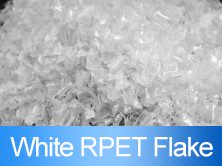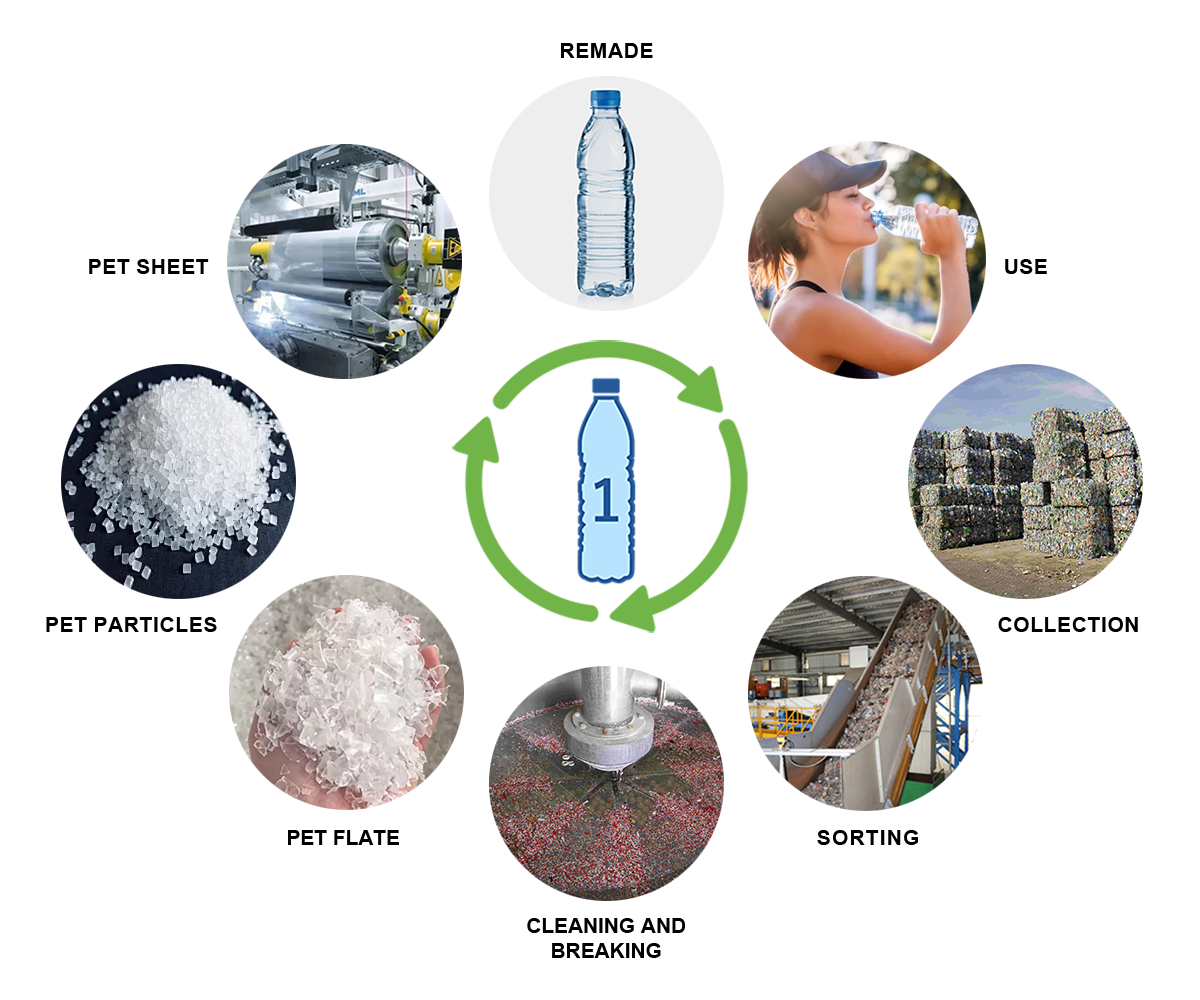RPET, short for Recycled Polyethylene Terephthalate, is an eco-friendly plastic material that has gained significant attention in recent years due to its sustainable properties. This article explores the benefits of RPET plastic, comparing it with Virgin PET, and emphasizing its recyclability and environmental impact.
RPET is a type of plastic derived from recycled polyester, primarily sourced from discarded plastic bottles. Through a series of rigorous processes, these bottles are transformed into high-quality plastic material with a wide range of applications.
Sustainability Advantages
Reducing Environmental Footprint: By using RPET instead of Virgin PET, significant reductions in greenhouse gas emissions and energy consumption are achieved. Virgin PET production relies heavily on fossil fuels, while RPET production recycles waste materials, minimizing new resource extraction.
Conservation of Resources: RPET contributes to the circular economy by keeping plastic waste out of landfills and oceans. It conserves natural resources like oil and gas, which would otherwise be used to produce new plastic.

Recyclability and Reusability
Endless Cycle: One of the key advantages of RPET is its recyclability. Products made from RPET can be recycled again, creating a closed-loop system that minimizes waste generation. This ensures that resources are continually reused and recycled.
Multiple Life Cycles: Unlike Virgin PET, which often ends up in landfills or incinerators, RPET products can have multiple lives. They can be repurposed into new products, such as clothing, packaging, and building materials.
Comparison with Virgin PET
Cost-Effectiveness: Although initial production costs of RPET may be slightly higher due to sorting and processing, its long-term benefits, including cost savings from resource conservation and waste reduction, make it a financially viable option.
Environmental Impact: Virgin PET production significantly contributes to climate change, whereas RPET reduces emissions and preserves natural resources. Consumers and businesses alike are increasingly choosing RPET for its environmental advantages.
Applications and Market Growth
Diverse Uses: RPET is widely used in various industries, including textiles, packaging, and building materials. Its versatility allows it to replace Virgin PET in many applications, reducing the demand for virgin plastics.
Market Momentum: The demand for RPET is growing rapidly, driven by consumer awareness of sustainability and government regulations promoting recycling. Companies are adopting RPET to showcase their commitment to environmental responsibility.
RPET plastic represents a significant step forward in sustainable plastics manufacturing. Its recyclability, reduced environmental footprint, and versatility make it an attractive alternative to Virgin PET. As consumer and business demand for sustainable products continues to grow, RPET is poised to play a critical role in shaping a more circular and environmentally friendly future. By choosing RPET, we can contribute to a more sustainable planet and protect our natural resources for generations to come.









